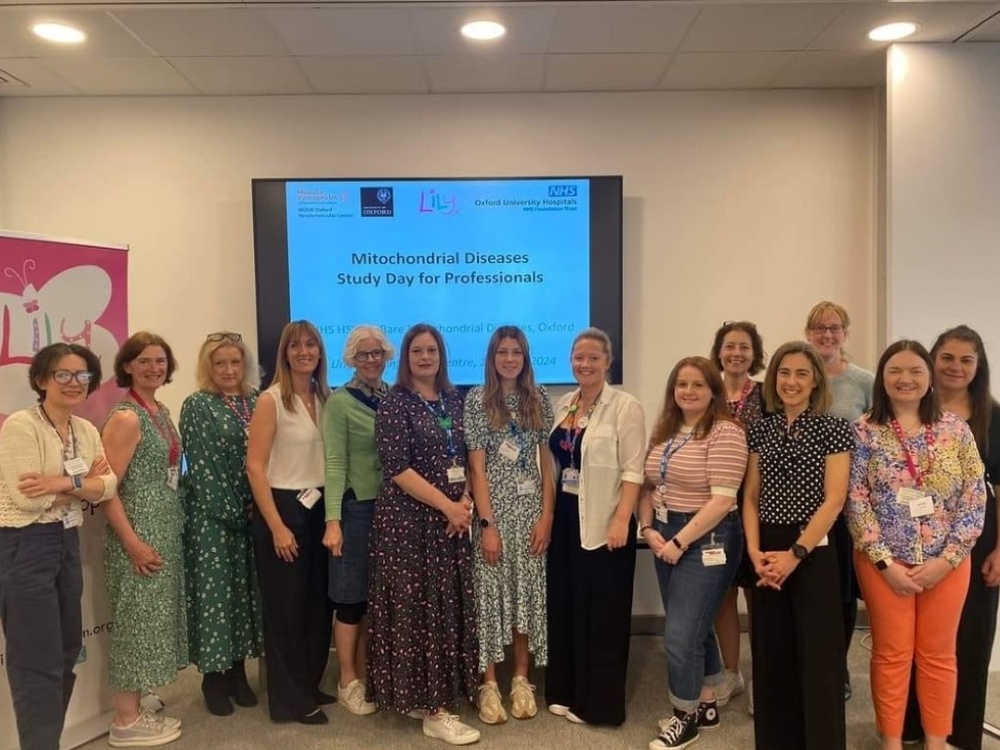Organised by the NHS Highly Specialised Services for Rare Mitochondrial Diseases team in Oxford, the event was aimed at non-specialist professionals who work in a number of different roles caring for mitochondrial disease patients.
The audience was a mix of paediatricians, specialist nurses, genetic counsellors, therapists and trainees, all of whom look after patients with mitochondrial disease but work outside of the three main specialist mitochondrial disease centres in the UK.
They had come to learn more about a range of topics including making a mitochondrial disease diagnosis and explaining a specialist diagnosis to a family. There were also several smaller group sessions throughout the day for those working with children and adults.
Many in attendance had travelled to the city of dreaming spires from centres in Birmingham, Bristol and Southampton, and there to represent Team Lily were CEO Liz Curtis and Patient Engagement & Advocacy Manager Katie Waller.
Katie took to the floor to explain to those in attendance how the emotional and practical support we offer complements the clinical care they give, and how well-placed they are to be able to signpost our services to patients.
She also talked about how strongly we advocate for mitochondrial disease patients and gave a brief overview of the research we fund. One of the studies she highlighted was our Precision Diagnostics Project, which felt particularly relevant given that there may have been clinicians in the audience wanting to refer their patients into the study.
Katie concluded by sharing a video about Millie and the tragic loss of her son Otto to mitochondrial disease, a story that really highlights the importance of obtaining a genetic diagnosis. Having a mitochondrial disease diagnosis is crucial in giving patients and families the opportunity for improved clinical management, access to clinical trials and, where relevant, better reproductive options.
One health care professional in attendance said afterwards of the event: “It was a very informative and useful multidisciplinary day, with lots of very practical information about how to best care for patients with mitochondrial disorders. I found Katie’s talk very inspiring,” she continued. “It's absolutely incredible what Liz and The Lily Foundation team have achieved! What an amazing legacy for Lily.”
We support everyone affected by mitochondrial disease, and that extends to the healthcare professionals who work hard to care for mitochondrial disease patients up and down the country. If you’d like further information about any of our services, please visit our website or contact [email protected].

